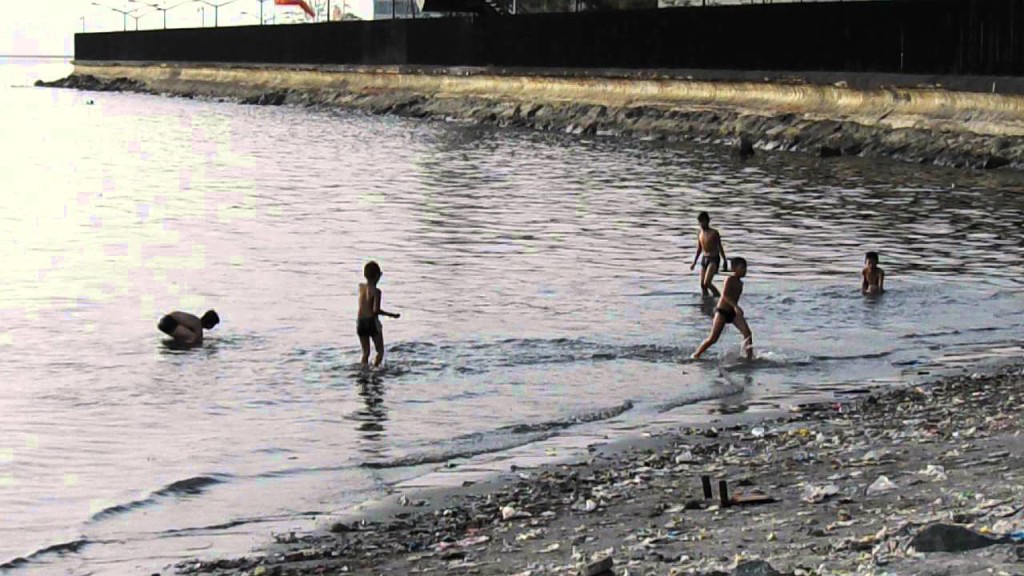Breaking
DOH reminds public on swimming in dirty bodies of water

Kids taking a swim in Manila Bay (screenshot from Sheryll Pink’s YouTube video)
MANILA — The Department of Health (DOH) is reminding the public that swimming in dirty bodies of water is dangerous, especially for the children.
According to DOH Secretary Janette L. Garin, there is a tendency for small microorganisms to enter the openings of the body during swimming in dirty water, which is definitely not safe and not recommended.
“The problem is that there is a possibility that small children may accidentally drink some volume of water as they plunge to it (dirty bodies of water). Another danger is when the dirty water enters in the body openings such as nose and eyes,” she said.
Garin stressed it is important for the public to always be careful and ensure the cleanliness of the bodies of water when planning to engage in any swimming activity this summer to avoid any health problem.
“It is also important that the children are accompanied by an adult while they swim to avoid incidence of drowning,” she said.
She explained that choosing the right bodies of water or clean swimming pools should be well-considered in planning family outing during summer.
She also said it is important that the adult who accompanies the child knows how to swim and is not under the influence of alcohol.
“Never allow children to swim alone,” she cautioned.
In Manila, an ordinance is being implemented wherein swimming in the dirty waters of Manila Bay is not allowed, according to DOH spokesperson Dr. Lyndon Lee-Suy.
“But regardless of the presence or absence of an ordinance, it is important to note that swimming in dirty waters is a ‘big no’ and not good for the body,” Dr. Lee-Suy said.
He added that another danger in swimming in dirty bodies of water is it could lead to other infections and skin diseases.
He said that such is the reason why they are discouraging some of those who will undergo penitential rituals during this Holy Week — like crucifixion and self-flagellation — not to swim in dirty bodies of water to cleanse themselves.
“The presence of small and unseen microorganism as well as the e-coli bacteria that may enter the open wounds will likely aggravate the wound/s and may lead to tetanus infection,” he added.
As a precaution, Dr. Lee-Suy said that aside from cleansing the wounds with soap and clean water, a wounded penitent should see a doctor for advice on antibiotics and shot of anti-tetanus to avoid serious complications.
Tetanus or lockjaw is a serious infection caused by Clostridium tetani bacteria which produce a toxin that affects the brain and nervous system.
The toxin leads to stiffness in the jaw muscles as well as other muscles.
The infection can cause severe muscle spasms, serious breathing difficulties, and can ultimately be fatal.
Clostridium tetani spores can be found most commonly in soil, dust and manure, but also exist virtually anywhere.
If deposited in a wound, the neurotoxin interferes with nerves that control muscle movement.





















